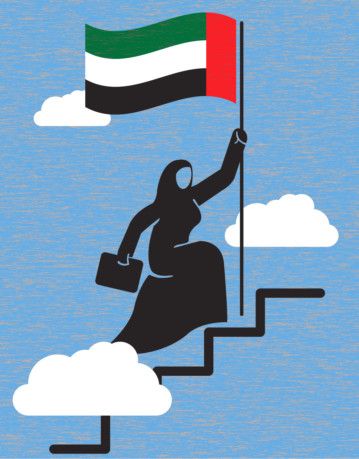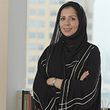
Women in the UAE have never been empowered, enabled, and emboldened... as they are today. From taking the reins of corporate and government leadership to pursuit of higher education, it almost seems like that the glass ceiling has been shattered.
What is even more impressive is the leaps and bounds that women in this country have taken in the technology field. This accomplishment is – literally – universal with women playing key roles to ensure that the pride of the UAE space programme, the Hope Mars Mission, succeeds. At the Mohammed bin Rashid Space Center, 42 per cent of the workforce are women.
Moreover, 70 per cent who work on the UAE’s Astronaut Programme are women, as is over one-third of the Hope Mars Mission team.
And yet under-represented
While we’ve taken to the skies and succeeded, we do have yet another challenge to overcome closer to the ground: gender parity in boards of directors. Simply put, women’s representation at the board level is still far from adequate.
The numbers speak for themselves: women account for only 1.5 per cent of members of UAE company boards of directors. Regionally, this number sits at 3.7 per cent - a far cry from Northern Europe’s 37.6 per cent, as per a 2020 Corporate Women Directors International survey, an advocacy group.
This is not to say that this issue is not being addressed as the UAE’s leadership have taken notice. In 2012, His Highness Sheikh Mohammed bin Rashid Al Maktoum, UAE Vice-President and Prime Minister and Ruler of Dubai, announced a momentous cabinet decision that makes it compulsory for corporations and government agencies to include women on their Board of Directors.
The decision was a major achievement for women, as at that time, only Norway had passed similar legislation.
The outcome was extraordinary. Four years later, 111 Emirate women ran for board positions at 111 companies listed in the stock exchanges, according to the UAE Gender Balance Council. And occupy 15 per cent of the positions at boards of chambers of commerce and industry.
Token presence
But the question must be posed: why are we then only at 1.5 per cent representation? While the law requires that women be represented at the board level, no quotas were set. In addition, the regulations did not extend to the private sector – only to government-owned entities.
This issue, yet again, has not gone unnoticed by the leadership. Earlier this year, Sheikha Shamma bint Sultan bin Khalifa Al Nahyan launched ’20 for 2020’, aimed at driving gender balance at the board level by providing 20 women the opportunity to take part in a year-long professional development course while they gain board-level experience.
Pull their weight
While the leadership does provide the wisdom and guidance, the onus lies on companies themselves to deliver on diversifying their boards. The benefits are substantial: female participation offers fresh perspective, a new type of leadership, and just as importantly, opportunities for healthy conversations at the board level that contributes to more effective decision-making.
Women board members can also champion workplace diversity, setting an example for the next generation of female leadership, and encouraging and mentoring women who are starting their careers. And as it is twice more likely that women will have a technology background over their male peers, organizational digital transformation – a key imperative in today’s world – becomes much more likely to be adopted.
The advantages of having more women on boards of directors are clear-cut, and organizations should take it upon themselves to increase female representation. There are two steps that they may take to increase female participation in the coming years: mandating a diversity policy and setting measurable and achievable targets.
By doing the former, diversity is cemented into the company ethos; by doing the latter, the company reinforces its commitment to gender parity, not only at the board level, but also throughout the organization.
The UAE, and not without effort or guidance from our leadership, has taken the helm of the gender parity agenda in the Middle East. As a nation and as a people, we have learned to set no bounds to what we can do.
As Emiratis, we’ve looked to the stars and challenged ourselves to leave our mark beyond the reaches of space. We have set our sights on a planet almost 72 million kilometres away and triumphed.
So let us not overlook a target that is closer to home and even more obtainable. The one target that is just above our heads - more female representation at the board level.
- Hanan Ahmad is acting Head of Corporate Affairs and Assurance at du (EITC).









